Kazakhstan: torture victims struggling to obtain justice after the January 2022 events
The Kazakhstani NGO Coalition against Torture (The Coalition) and International Partnership for Human Rights (IPHR) are concerned that investigations into allegations of torture and ill-treatment of those targeted and detained in connection with the mass protests that swept through Kazakhstan in January 2022 have not been conducted effectively. Authorities used excessive and, in some cases, lethal force to disperse demonstrators and detained over
10 000 protesters. There have been widespread allegations of torture of those detained in connection with the protests. However, many victims of abuse have not lodged complaints or have later dropped them because they do not believe that justice can be obtained through Kazakhstan’s criminal justice system or because of reprisals or fear thereof. According to official sources, eight people died in custody after being detained in connection with the January events.
At a parliamentary plenary session on 14 March 2022 the Prosecutor General of Kazakhstan stated that the authorities had received 301 allegations of torture and ill-treatment and “unlawful methods of investigations” in relation to the January 2022 events and that 243 criminal cases had been opened into such allegations. The Kazakhstani NGO Coalition against Torture received 142 allegations of torture and ill-treatment: 37 from Taldyqorghan, 35 from Almaty, 14 from East Kazakhstan region, 14 from Taraz, 11 from Atyrau, seven from West Kazakhstan Region, six each from Kyzylorda and Pavlodar region, four each from Shymkent and Kostanai, three from Aktobe and one from Karaganda. These include dozens of credible allegations relating to severe torture and sexual violence of detainees with the aim of coercing them to confess to accusations of participating in violent and unlawful acts during the January events. The complaints received (by both the authorities and the coalition) are believed to constitute only a fraction of all the cases of torture and ill-treatment that took place.
Fear of lodging complaints
The Kazakhstani Coalition against Torture is concerned that many victims have refrained from lodging complaints for fear of being charged with “making false accusations of a crime” (Article 419 of the Criminal Code) or “distributing knowingly false information” (Article 274). For example, the Department of Internal Affairs of Atyrau region has posted warnings on its official Facebook page that people could be prosecuted for the above offences in relation to torture complaints. In some cases, lawyers have come under so much pressure from law enforcement agents that they have stopped defending their clients as actively as before.
The Coalition is also aware of many cases where the authorities failed to put in place any protective measures against reprisals against victims who lodged complaints while they were in detention, despite the fact that detention facilities are under the jurisdiction of the Ministry of Internal Affairs, the very agency whose employees are implicated in the complaints.
Serious torture and sexual violence
The Coalition is aware of dozens of cases that involve allegations of abuse amounting to torture including several cases of rape, threats of rape and other violent acts of a sexual nature.
For example, R. S., a female human rights defender described the torture she was subjected to after she was detained on 12 January 2022 in the city of Semey in eastern Kazakhstan, in relation to her alleged participation in “mass disorders and seizure of buildings“: “I was held in a cold isolation cell at the temporary detention facility without electricity, water, access to fresh air, no toilet, no mattress. I had to sleep on an iron bedframe, and I could not eat the food because of the horrible smell. The major demanded that I cooperate with the investigation and sign the [confession statement] in exchange for a comfortable ward. When I refused to perjure myself, the major said that everything would be “bad.” Then, they strangled me until I lost consciousness. Apolice officer in the temporary detention facility of Semey tried to rape me with a truncheon”. R. S. subsequently lodged a complaint with the General Prosecutor’s Office.
In Taldyqorghan state officials reportedly used sexual violence against numerous detainees in order to force them to confess to accusations of participation in violent acts, possession of weapons or theft during the January events.
Some perpetrators of sexual violence and torture have reportedly recorded acts of abuse in order to blackmail victims held in detention. Sexual violence is a taboo in Kazakhstani society and thus victims rarely speak out about it. This in turn means that such cases frequently go uninvestigated, and perpetrators benefit from impunity. Research indicates that victims of sexual violence are more likely to commit suicide or self-harm because the trauma they experience is compounded by victim-perpetrator reversal and social stigmatization of sexual violence.
Torture and ill-treatment of minors
The Coalition also received many allegations of torture and ill-treatment with regard to children who were among those detained in connection with the January protests. Some families spoke publicly about their children’s ordeal while in detention in the Department of Internal Affairs in the southeastern city of Taldyqorghan and in the temporary detention facility in the city of Tekeli (40 km from Taldyqorghan), stating that security forces had beaten the children severely and burned them with hot irons, pushed needles under their nails, and threatened them with guns.
For example, the parents of a 15-year-old schoolboy reported that police officers had burnt their son’s back with an iron and had pulled out four of his teeth. When his mother visited him, she saw large wounds on his thighs. Reportedly, he had been taken to a cellar with a group of other children, where officers threatened them at gunpoint, and instructed them to do everything they were told, they would shoot their parents.
Investigations not effective and suspected perpetrators not suspended from duty
The Coalition and its lawyers are working together with victims and their families who are willing to fight for justice. However, in none of the cases that the Coalition has worked on has a thorough, impartial and effective investigation been conducted to date and the forensic examinations that have been carried out fall short of international standards.
For example, in the southern town of Taraz a complaint about torture was investigated by the same police investigator who was implicated in the complaint. When the investigation was opened the victim was detained in a Ministry of Internal Affairs facility, i.e., the institution where the alleged perpetrator worked.
Lawyers cooperating with the Coalition have noted numerous procedural violations which have been committed in connection to torture investigations. An example are investigations in the city of Kostanay, where law enforcement officers allegedly falsified documents to protect the perpetrators.
In addition, there are allegations that in many cases authorities have failed to conduct forensic medical examinations. For example, in the East Kazakhstan region the Coalition is not aware of a single forensic medical examination which has been carried out in connection with investigations into torture allegations linked to the January events. Lawyers in Almaty report that the only forensic medical examinations that have been conducted were privately organized after the victims had been released from custody. In those cases when authorities did order forensic medical or psycho-psychiatric examinations they were not conducted thoroughly and fell short of the standards of the Istanbul Protocol (Practical Manual on the Effective Investigation and Documentation of Torture and Other Ill-Treatment).
To date, the Coalition is aware of only one police officer who has been suspended from duty while allegations that he tortured ten detainees in Taldyqorghan are being investigated. In the town of Ekibastuz
in Pavlodar region, the local anti-corruption service, which is tasked with investigating allegations of torture relating to the January events, turned down a request by the victim’s lawyer that the alleged perpetrator should be suspended from duty while the investigation was being conducted. On 28 February the Prosecutor General’s Office announced the detention of nine law enforcement officers suspected of using “unlawful methods of investigation” against detainees.6The Coalition will monitor theinvestigations and the resulting consequences very closely.
Background information on the January 2022 events: demonstrators subjected to excessive force and mass detentions
On 2 January 2022, peaceful protests over a sharp increase in fuel prices began in Mangystau region in Kazakhstan. In the days that followed, the protests spread to other regions, with thousands of people voicing demands for broader social and political change. Under circumstances which remain unclear, the protests escalated into violence, and security forces responded with excessive and lethal force. As a result, over 200 people were killed and thousands injured. Peaceful protesters, activists and bystanders, including children were among those killed.
The intense security operations included the detention of over 10 000 people, many of whom had not been involved in any violence or unlawful acts and were solely exercising their right to peacefully protest. Journalists and human rights activists were among those detained. In some cases, detainees were reportedly held in makeshift detention centres and denied access to legal assistance and the right to inform their relatives about their whereabouts, with alarming allegations of the use of torture and ill-treatment against detainees. Concerns about the authorities’ response to the January events are reinforced by their broad use of “terrorism” rhetoric and the president’s controversial order to security forces to ”shoot without warning” when putting down the unrest that ensued,
The Coalition is providing legal and psychological assistance to victims of torture and other ill-treatment. Reports of torture, cruel, inhuman, degrading treatment by law enforcement or other authorities, or the structures or individuals involved, can be addressed to the Coalition’s coordinating organisation:
KIBHR Head Office in Almaty
4a, microdistrict 8, Almaty, 050035, offices 423 and 428.
Anna Solodova, attorney-at-law, legal and psychological assistance coordinator throughout the Republic of Kazakhstan
+77081120938, smirnova.ig.anna@gmail.com



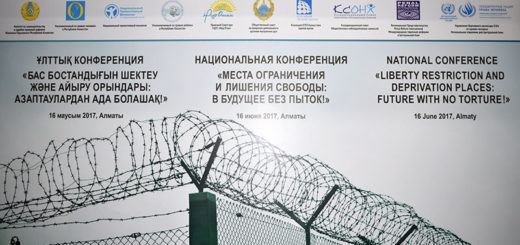
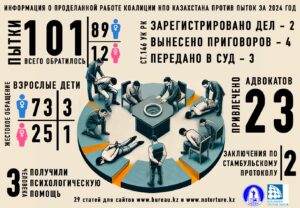
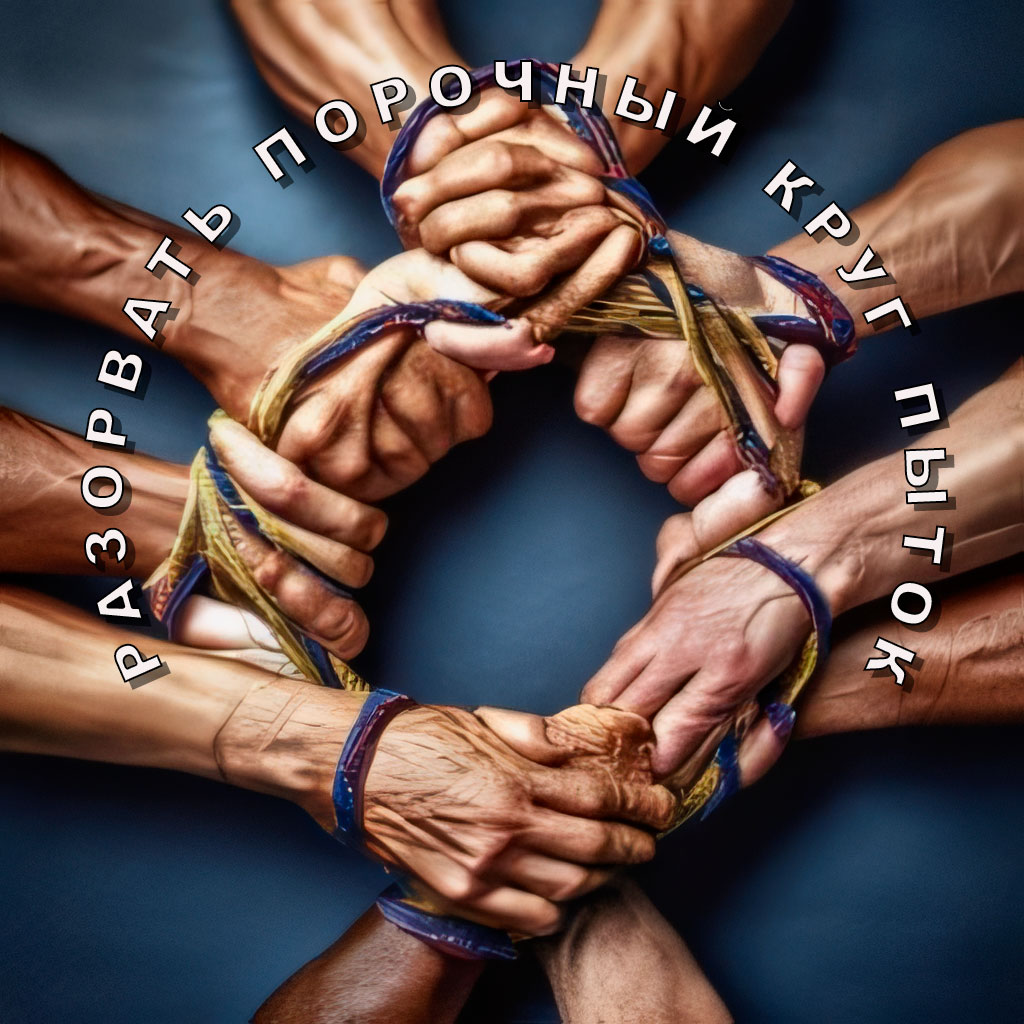

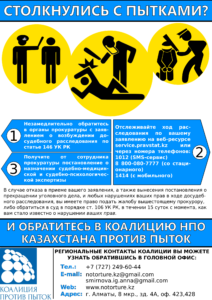
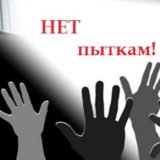




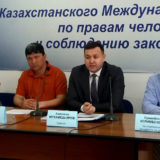

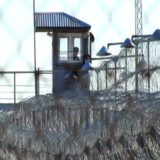
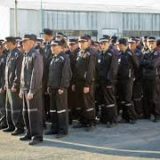
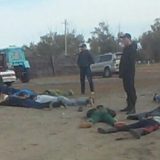
Свежие комментарии